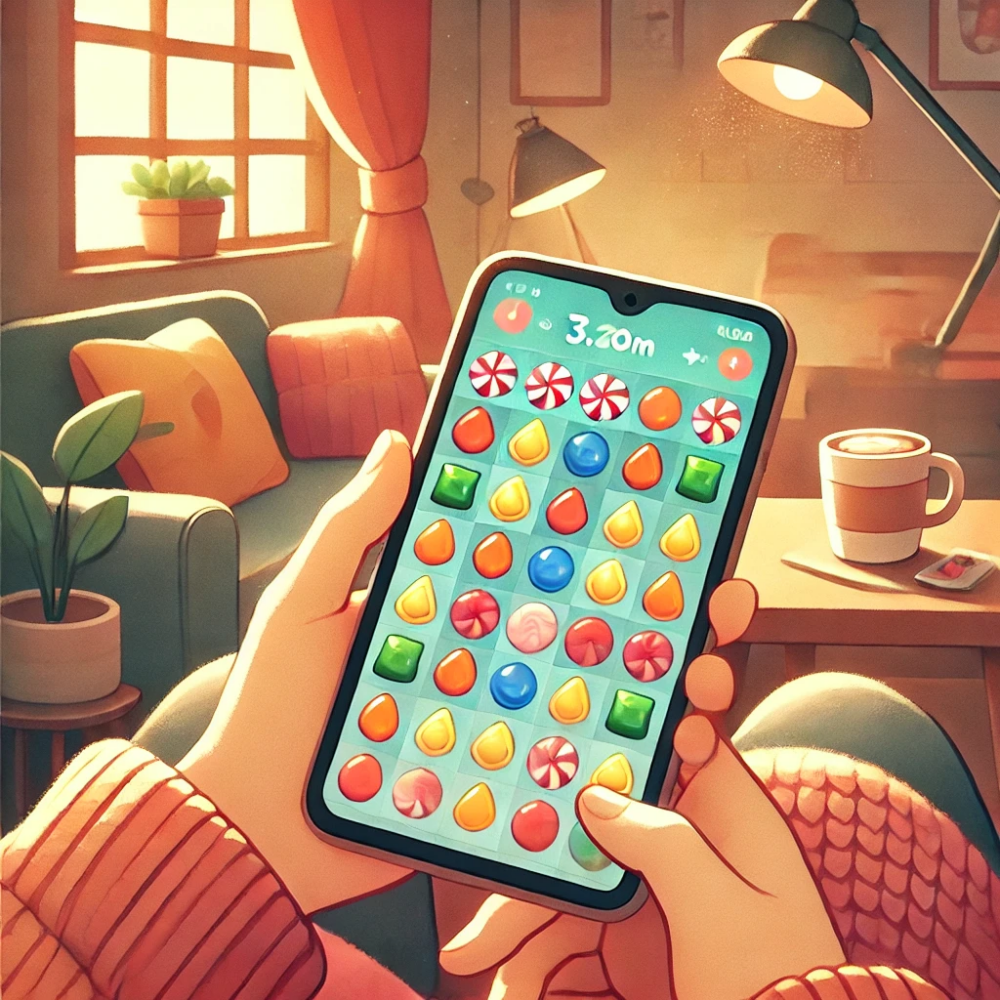Learning from crushing candy

The only mobile phone games I regularly play are Wordle and Connections from the New York Times (Wendy and I often tackle the latter together), so I’m a bit out of my depth with all of this stuff. I’m not sure I’ve ever played Candy Crush, which is the game MacKenzie leads his piece with:
Playing Candy Crush Saga on your phone involves moving brightly coloured sweets around to the sound of cheerful music. Get three or more identical sweets into a line, and they gently explode and disappear. Your score ticks up, and a cascade of further sweets refills the screen. If all goes well, you’ll soon complete a level. A warm, disembodied, male voice offers encouragement: ‘Divine!’, ‘Sweet!’
The iPhone version of Candy Crush was released in November 2012, and an Android version a month later. In December 2013, the BBC reported that train carriages in London, New York and other big cities were full of commuters ‘fixated on one thing only. Getting rows of red jelly beans or orange lozenges to disappear.’ It has always been free to install Candy Crush, and it has been downloaded more than five billion times, which suggests that hundreds of millions of people must have played it. More than two hundred million still do, according to the game’s makers, the Anglo-Swedish games studio King. Those players aren’t going to exhaust the game’s challenges any time soon: Candy Crush has more than fifteen thousand levels, and dozens more are added every week.
Candy Crush is big business. By 2023, it had earned more than $20 billion in total for King and Activision Blizzard, the games conglomerate that bought King in 2016 for $5.9 billion. Activision Blizzard has now itself been bought by Microsoft for $69 billion, a consolidation of the games sector that caused the UK’s competition regulator, the Competition and Markets Authority, enough concern that it initially tried to block it.
I was surprised to learn that only 3-5% of players typically spend money on these games. I’d understood that microtransactions were a big source of income, but not that so much of the income comes from so-called ‘whales’ who spend tens of dollars a month.
I did not know that a big portion of the income from these games comes from advertising other games within them. Companies are keen not to lose ‘whales’ to other games, which is presumably why buying things in games often comes with the side-benefit of removing ads… for other games where you might otherwise spend your money instead.
I was also surprised—and pleased—to learn that only 20% of iPhone users consent to apps tracking their behaviour, in that pop up which appears when one first installs an app. I had not understood how many job losses this had caused in the gaming industry.
The article is well-worth a few moments of your time.
The image at the top of this post was generated by DALL·E 3.
This post was filed under: Technology, Donald MacKenzie, The LRB.